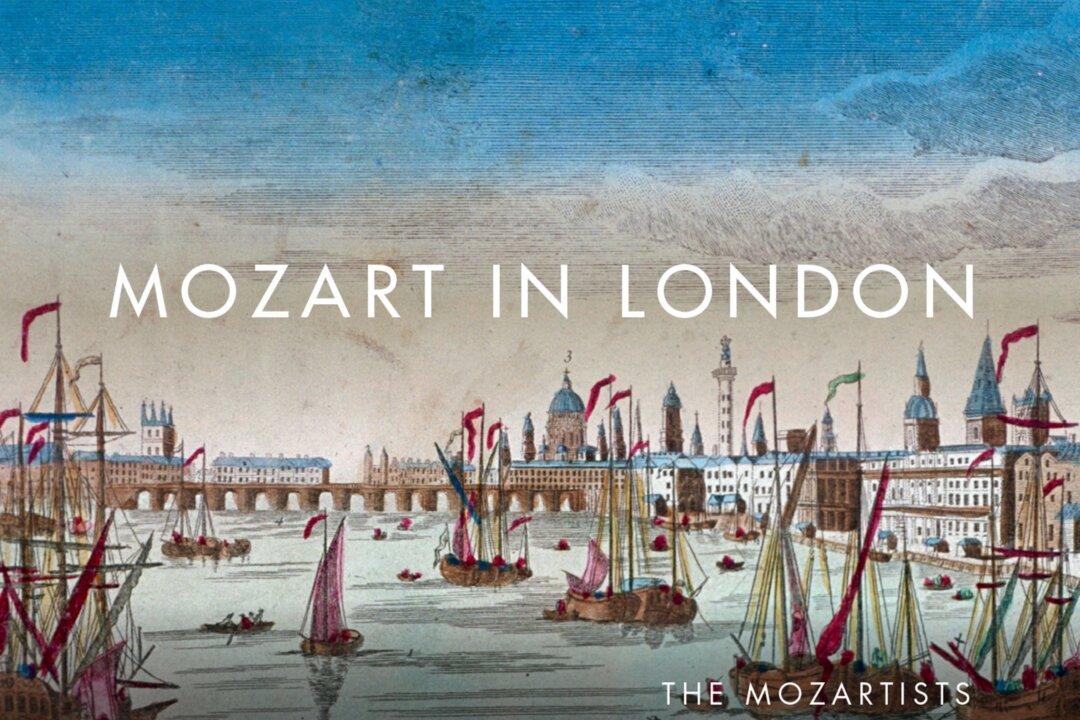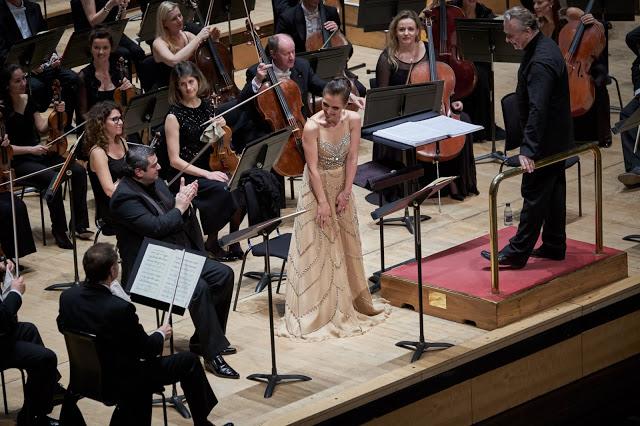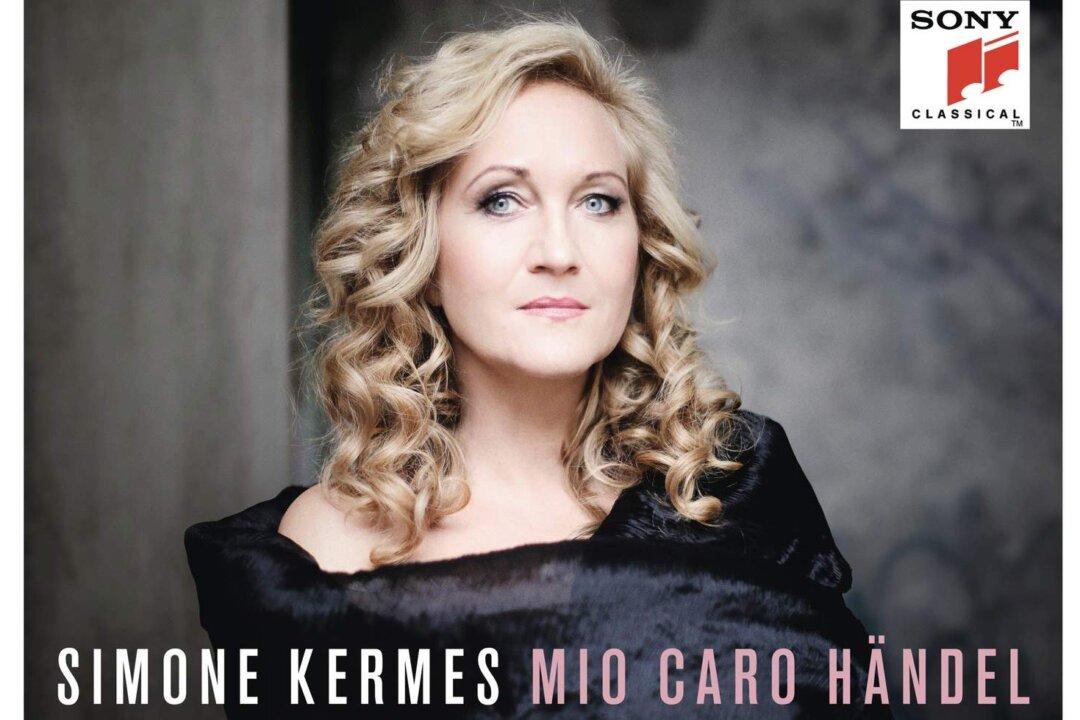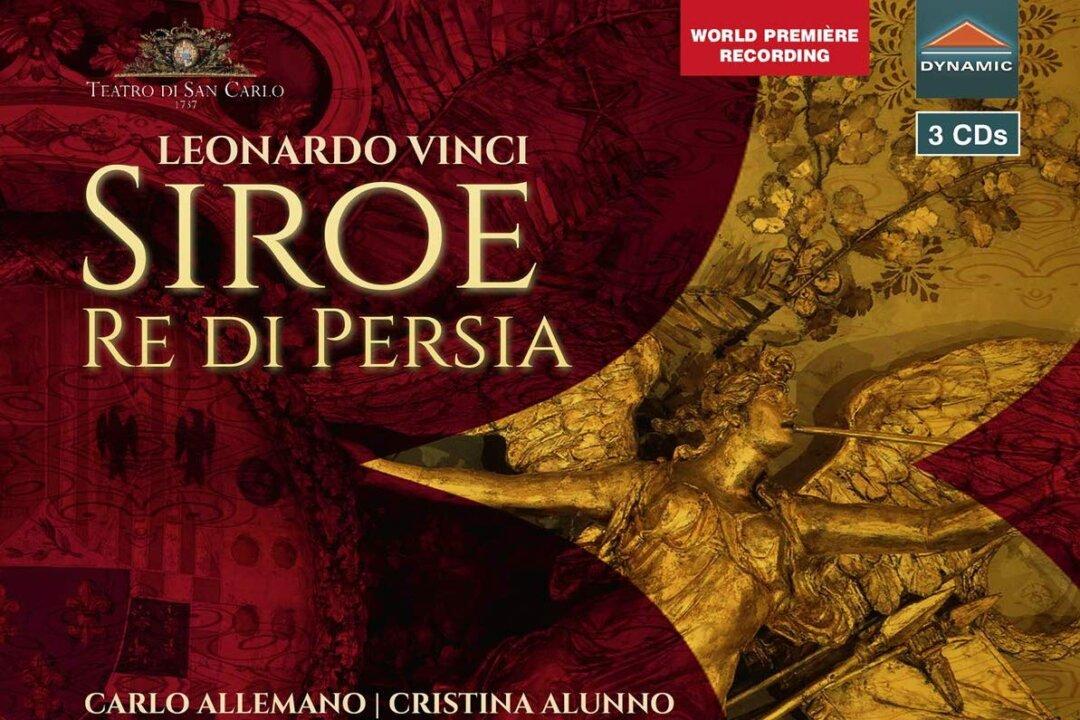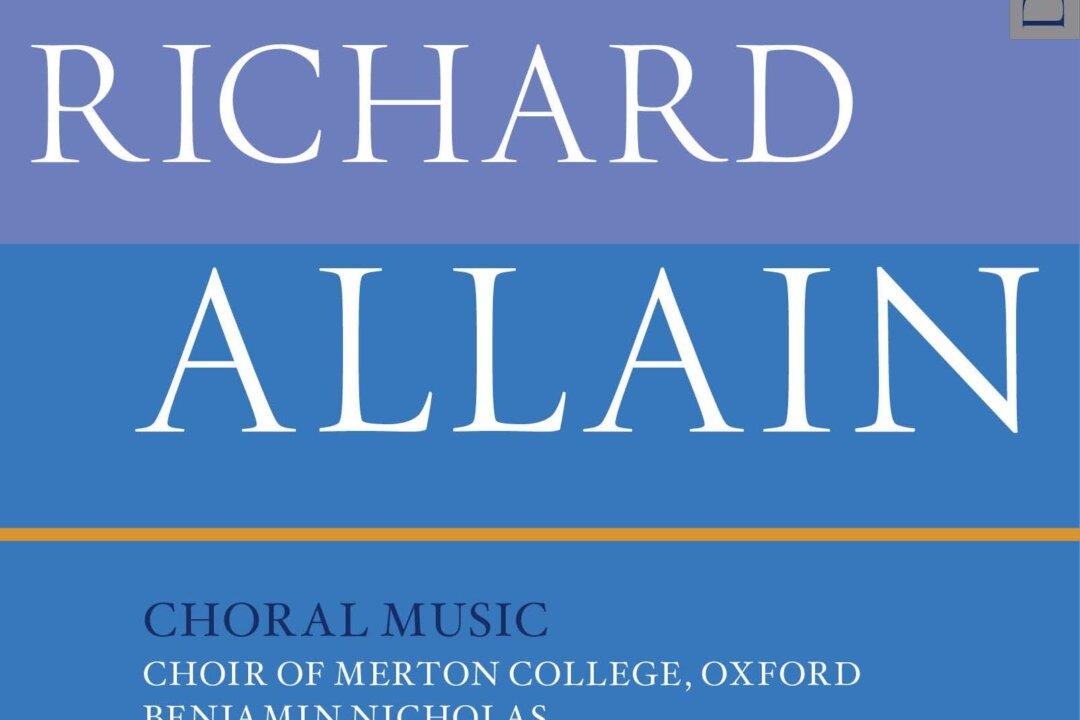An illuminating glimpse at the music Mozart heard in London during his visit in 1764–65, the two-disc set “Mozart in London” from Ian Page and The Mozartists on Signum Classics is the fruits of their Mozart festival in London in 2015, held as part of their ongoing “Mozart 250” celebrations.
The festival commemorated the 250th anniversary of Mozart’s London visit with programs of music written by the young composer during that time (his first symphonies and his first concert aria), alongside the music that he would have heard in London, notably by J.C. Bach and Thomas Arne but also by many others.

